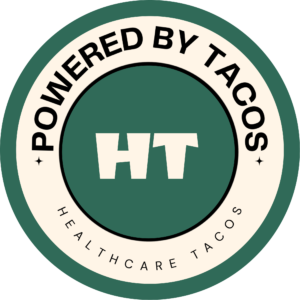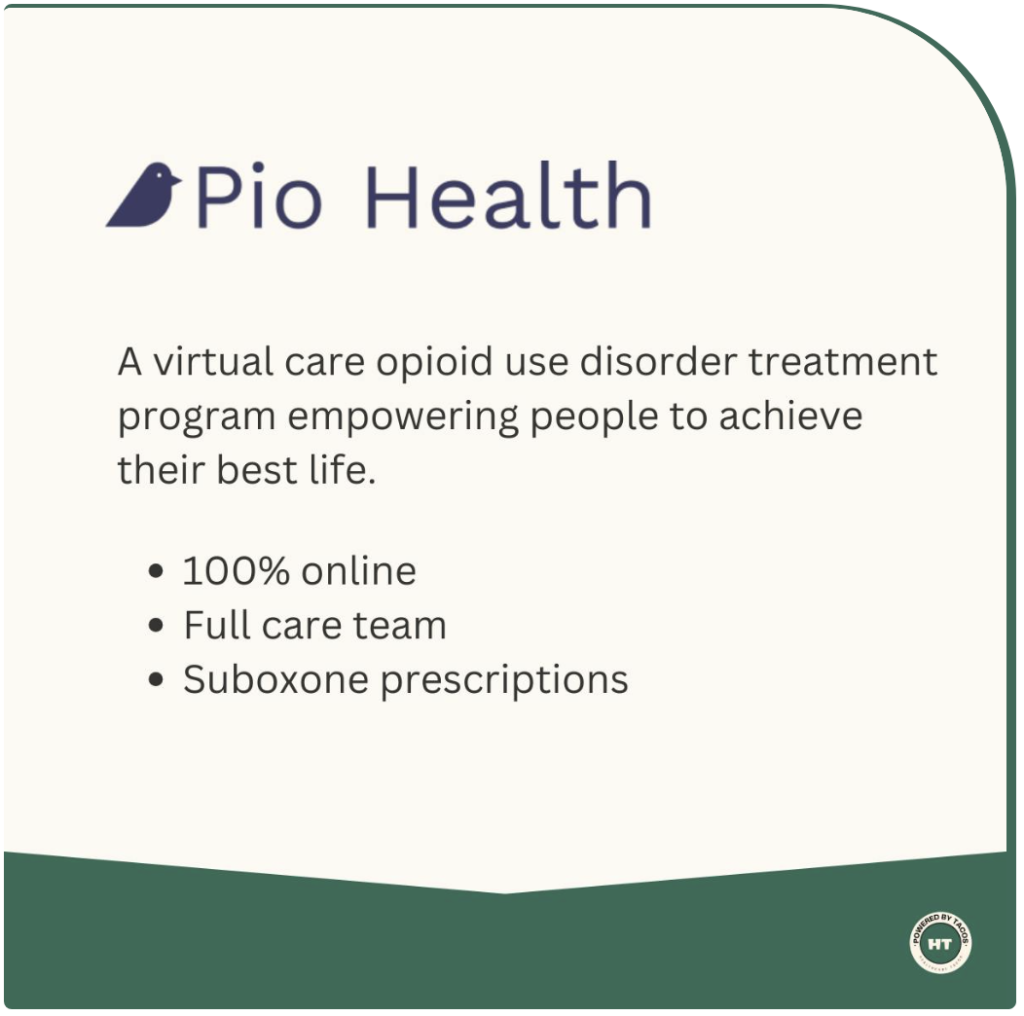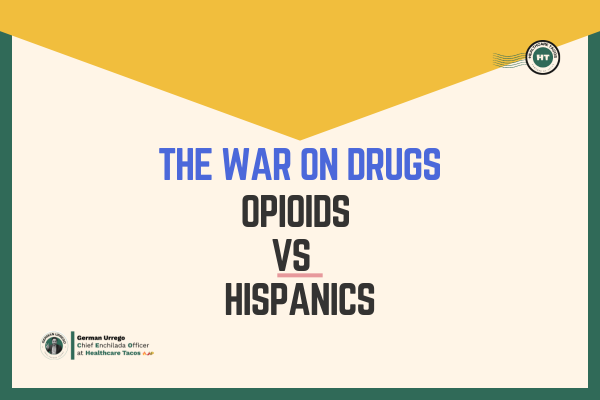

Amig@s – The War on Drugs, Opioids vs Hispanics
Let me share something personal.
My uncle, who I consider my brother from our childhood in Colombia, struggles with opioid addiction.
About a year ago.
I moved in with him, thinking love alone could fix things. Of course, against my family’s wishes, I was determined to help him.
But I was completely wrong.
Not only did I fail to help, but I honestly think.
I made everything worse because addiction is far more complex than I understood.
What would you do for your brother?
I’m sharing this because, after my failed attempt to help him, I discovered something crazy.
The opioid crisis in the U.S. is also silently devastating our Hispanic community.
Yet, for some reason, this is something we rarely talk about.
Let’s taco ‘bout it.
Amig@s – The War on Drugs, Opioids vs Hispanics
Let me share something personal.
My uncle, who I consider my brother from our childhood in Colombia, struggles with opioid addiction.
About a year ago.
I moved in with him, thinking love alone could fix things.
Of course, against my family’s wishes, I was determined to help him.
But I was completely wrong.
Not only did I fail to help, but I honestly think.
I made everything worse because addiction is far more complex than I understood.
What would you do for your brother?
I’m sharing this because, after my failed attempt to help him, I discovered something crazy.
The opioid crisis in the U.S. is also silently devastating our Hispanic community.
Yet, for some reason, this is something we rarely talk about.
Let’s taco ‘bout it.
![]()
Three Insights 🌶️
I. Don’t Follow My Path
Moving in with my brother was my heart speaking louder than my head.
I thought sharing an apartment meant I could monitor him, keep him away from drugs, and “fix” him with family love.
Unfortunately, addiction is NOT a broken leg you can heal with rest and care.
It is a complex disease requiring professional help.
My presence, despite good intentions, may have enabled his behavior and delayed him from seeking real treatment.
Here is something I learned.
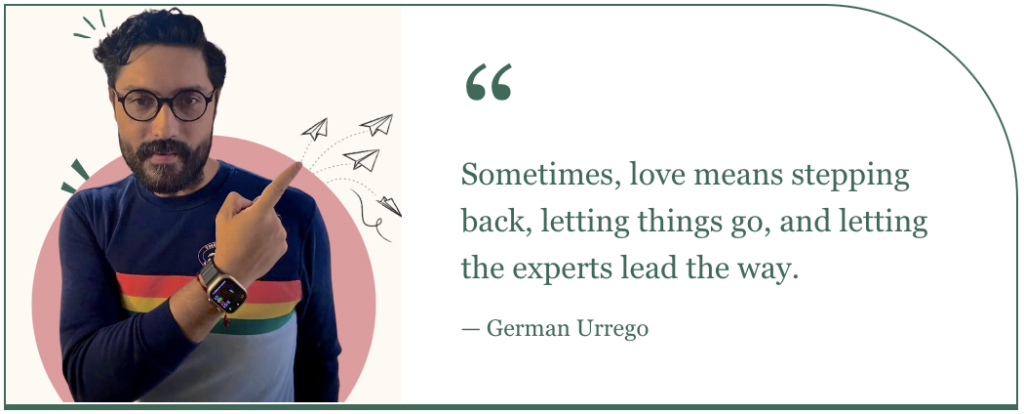
II. Knowledge Could Be a Curse
My own negative experiences with our own healthcare system became an excuse.
Since my brother does NOT speak English and is an undocumented immigrant.
I tried to convince myself.
He’d suffer more going through “the system” than actually battling addiction alone.
Well, as you know, I was completely wrong.
My fears and past trauma led me to keep him away from professional help.
Unfortunately, it was the one and only thing he desperately needed.
Here is the second thing I learned.
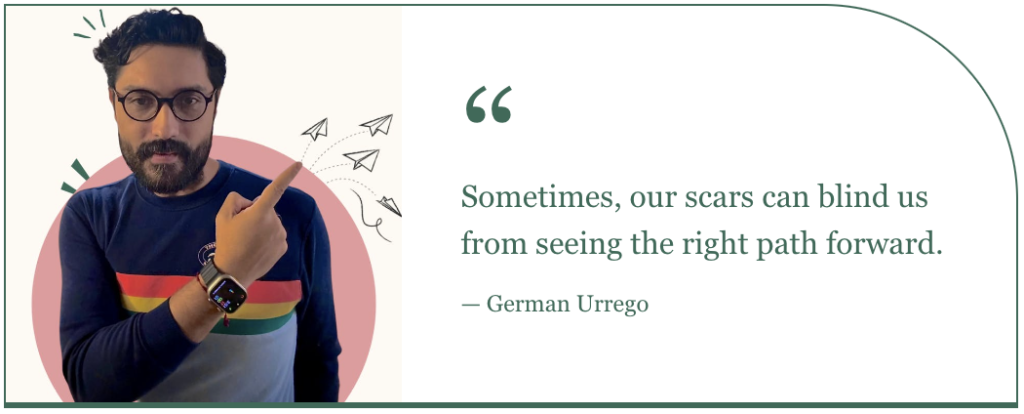
III. Silence Kills More Than Stigma
In our Hispanic community.
We often treat addiction like a family secret, algo que se queda en casa.
We whisper about it behind closed doors if we talk about it.
This silence is NOT protecting anyone.
It isolates those who need help and prevents others from learning from our experiences.
I’ve seen families torn apart not by the addiction itself but by the weight of carrying this secret alone.
While sharing my story hurts, keeping quiet hurts even more. I used to think staying silent was protecting my brother’s dignity.
Now I realize silence only protects the stigma that keeps our people from healing.
Whenever we speak up, we make it easier for another family to seek help. Each shared story is like opening a door for someone struggling in the dark.
Here is the third thing I learned.
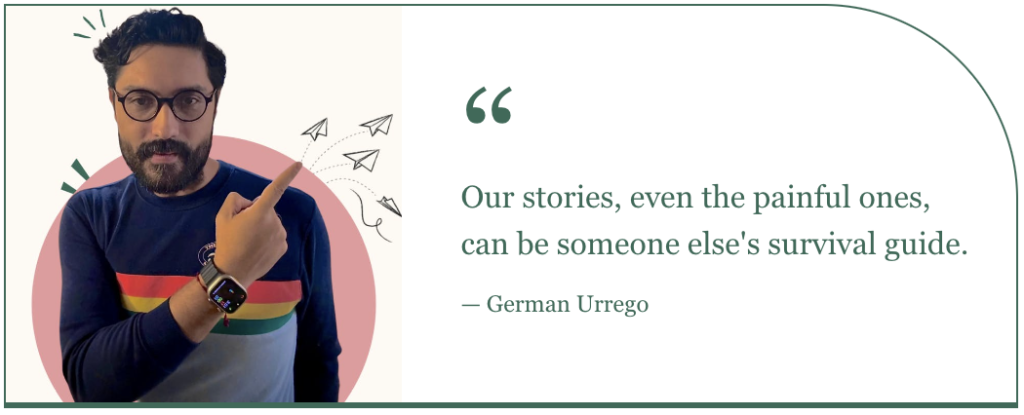
Insights
I. Don’t Follow My Path
Moving in with my brother was my heart speaking louder than my head.
I thought sharing an apartment meant I could monitor him, keep him away from drugs, and “fix” him with family love.
Unfortunately, addiction is NOT a broken leg you can heal with rest and care.
It is a complex disease requiring professional help.
My presence, despite good intentions, may have enabled his behavior and delayed him from seeking real treatment.
Here is something I learned.

II. Knowledge Could Be a Curse
My own negative experiences with our own healthcare system became an excuse.
Since my brother does NOT speak English and is an undocumented immigrant.
I tried to convince myself.
He’d suffer more going through “the system” than actually battling addiction alone.
Well, as you know, I was completely wrong.
My fears and past trauma led me to keep him away from professional help.
Unfortunately, it was the one and only thing he desperately needed.
Here is the second thing I learned.

III. Silence Kills More Than Stigma
In our Hispanic community.
We often treat addiction like a family secret, algo que se queda en casa.
We whisper about it behind closed doors if we talk about it.
This silence is NOT protecting anyone.
It isolates those who need help and prevents others from learning from our experiences.
I’ve seen families torn apart not by the addiction itself but by the weight of carrying this secret alone.
While sharing my story hurts, keeping quiet hurts even more. I used to think staying silent was protecting my brother’s dignity.
Now I realize silence only protects the stigma that keeps our people from healing.
Whenever we speak up, we make it easier for another family to seek help. Each shared story is like opening a door for someone struggling in the dark.
Here is the third thing I learned.

![]()
Two Actionable Steps 🌮
I. Find a Cultural Bridge
If you know someone struggling with addiction, don’t try to be their savior like I did.
Instead, be their bridge to professional help.
Research bilingual treatment programs and addiction specialists in your area who understand our community.
Save these numbers.
National Drug Helpline en español (1-844-289-0879) or SAMHSA helpline (1-800-662-4357).
Having these resources ready before a crisis could make the difference between action and hesitation.
Also, here is Gloria O’Neill, AKA (Dr. O), who runs two (MAT) organizations as its chief medical officer.
Most importantly, helping Hispanics through this process.
II. Break The Silence, Share With Purpose
Start small, but start somewhere.
When the topic of addiction comes up.
Share what you’ve learned, not the family gossip, but the real insights about getting help.
Maybe it is in your group chat, during a cafecito, or at a family dinner.
You do NOT need to share your whole story like I did, but even saying, “I know someone who got help, and it made a difference,” can plant a seed of hope.
Lastly, remember this.
Each conversation breaks down the wall of silence un poquito más.
Actionable Steps
I. Find a Cultural Bridge
If you know someone struggling with addiction, don’t try to be their savior like I did.
Instead, be their bridge to professional help.
Research bilingual treatment programs and addiction specialists in your area who understand our community.
Save these numbers.
National Drug Helpline en español (1-844-289-0879) or SAMHSA helpline (1-800-662-4357).
Having these resources ready before a crisis could make the difference between action and hesitation.
Also, here is Gloria O’Neill, AKA (Dr. O), who runs two (MAT) organizations as its chief medical officer.
Most importantly, helping Hispanics through this process.
II. Break The Silence, Share With Purpose
Start small, but start somewhere.
When the topic of addiction comes up.
Share what you’ve learned, not the family gossip, but the real insights about getting help.
Maybe it is in your group chat, during a cafecito, or at a family dinner.
You do NOT need to share your whole story like I did, but even saying, “I know someone who got help, and it made a difference,” can plant a seed of hope.
Lastly, remember this.
Each conversation breaks down the wall of silence un poquito más.
![]()
One Piece of Advice 💃
I wish someone had told me this a year ago.
Your love alone cannot cure addiction, but your love can guide someone toward healing.
Think of it like trying to save someone from drowning.
Jumping in without training often means two people will drown instead of one.
Real love sometimes means swimming to shore to call the lifeguard.
Even when every fiber of your being wants to dive in.
To my Hispanic brothers and sisters dealing with a loved one’s addiction.
You do NOT have to carry this peso alone.
Your strength is NOT measured by how much you can handle in silence but by having the courage to ask for help when needed.
Piece of Advice
I wish someone had told me this a year ago.
Your love alone cannot cure addiction, but your love can guide someone toward healing.
Think of it like trying to save someone from drowning.
Jumping in without training often means two people will drown instead of one.
Real love sometimes means swimming to shore to call the lifeguard.
Even when every fiber of your being wants to dive in.
To my Hispanic brothers and sisters dealing with a loved one’s addiction.
You do NOT have to carry this peso alone.
Your strength is NOT measured by how much you can handle in silence but by having the courage to ask for help when needed.
